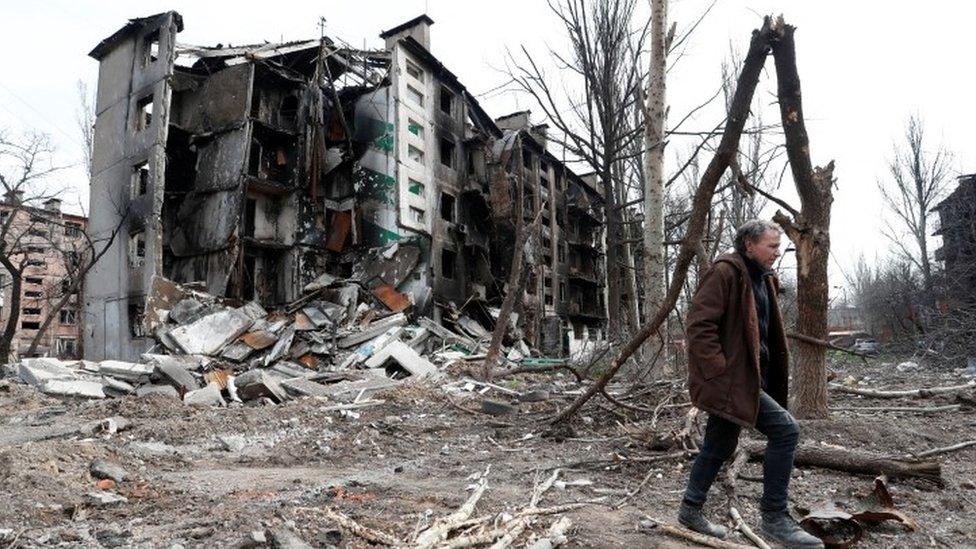Ukraine war: Russia bombards cities as eastern offensive begins
- Published
- comments
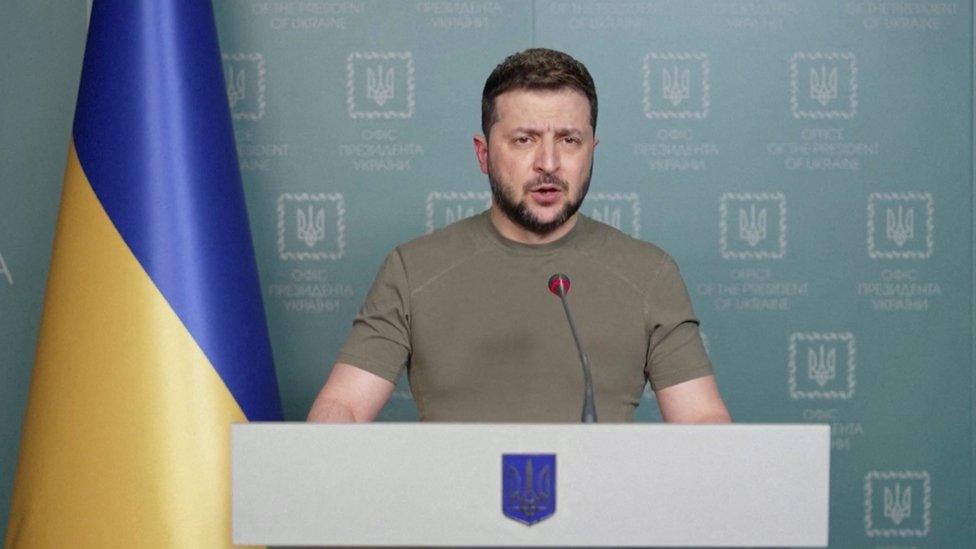
President Volodymyr Zelensky said a "large part of the entire Russian army" is now focused on the Donbas offensive
Ukraine's President Volodymyr Zelensky has said Russia has launched an assault to seize the eastern Donbas region.
Russian and Ukrainian forces clashed on Tuesday along the eastern front line, after Mr Zelensky said the battle for the Donbas had begun.
Ukraine's top security official, Oleksiy Danilov, said Russia was trying break through Ukrainian defensive positions throughout Ukraine's east.
The offensive had been expected after Russia failed to seize Kyiv.
After its push to overrun the capital stalled, Moscow announced its military would focus instead on eastern Ukraine where Russian-backed separatists have been fighting Ukrainian forces since 2014.
Luhansk is one of the most fiercely contested regions, and on Tuesday its Governor Serhiy Hayday said it had come under attack from all sides.
He announced that street fighting in the city of Kreminna had forced Ukrainian troops to withdraw and regroup, leaving Russian forces in control of the eastern city of 18,000.
"They moved in but our defenders had to retreat," Mr Hayday said. "The enemy was shelling every metre of our defence line."
The strategic port city of Mariupol, meanwhile, has come under intense bombardment.
Pro-Russian forces have reportedly begun an attempt to storm the city's Azovstal steelworks, where Mariupol's final defenders have been holding out for days.
Ukraine says civilians and children are among those holed up in the complex, but pro-Russian officials in the city have disputed this.
Mariupol is a key Russian target which if captured would allow its troops to complete a land-bridge between the occupied Crimean peninsula and separatist held regions of eastern Ukraine.
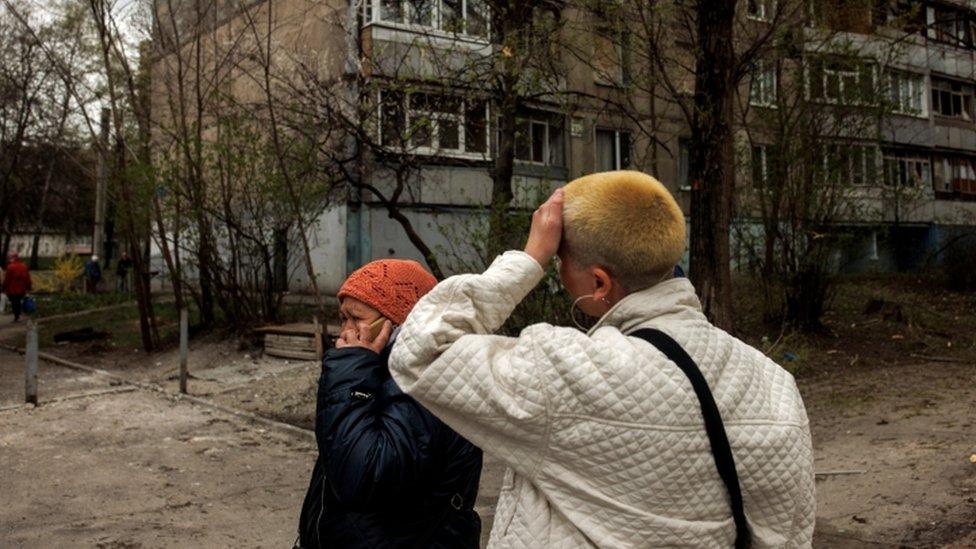
Two Kharkiv residents react after a fresh wave of Russian shelling targeted the city
In Kharkiv, which is 400km (249 miles) away in Ukraine's north-east, officials said three people had been killed and 21 injured in a new wave of attacks on the city.
"The intensity of the shelling of Kharkiv has increased," the regional governor Oleg Sinegubov said in a post on Telegram.
Russia initially appeared to want to capture major Ukrainian cities and topple the country's government.
But after facing stiff resistance, Russian defence officials said that its main objectives in the "first stage of the operation" had been "generally accomplished" and its forces were moved from areas around the capital.
They announced plans to redirect the focus of the invasion towards the "liberation" of the mostly Russian-speaking Donbas region.
Russia's President Vladmir Putin has portrayed the invasion as an attempt to demilitarise and "denazify" Ukraine, something Ukraine and its allies dismiss as a ruse for an unprovoked attack.
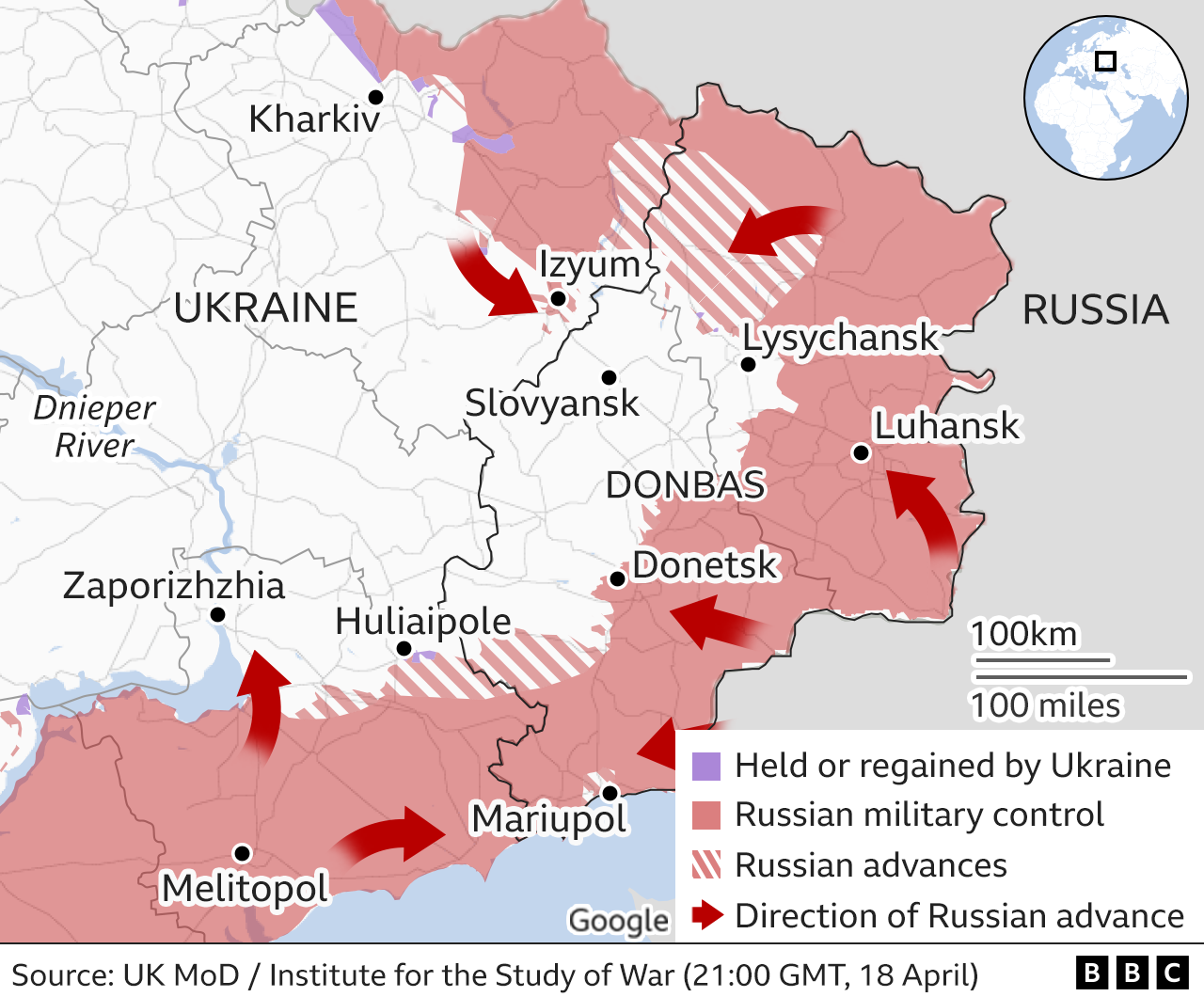
Russian defence officials said its forces struck more than 1,200 targets in Ukraine on Monday night, including 25 military command posts in Mykolayiv and Kirovsk as well as two weapon depots in east Ukraine.
Describing the fresh offensive in a television interview, Moscow's Foreign Minister Sergei Lavrov said "another stage of this operation is beginning, and I'm sure this will be a very important moment."
Speaking in a video message on Monday night, Mr Zelensky said that his forces had pledged to "not give up anything Ukrainian".
"A very large part of the entire Russian army is now focused on this offensive," he added, but said that Ukraine's forces will fight on "no matter how many Russian troops are driven there, we will fight".
Moscow claimed last month that it controlled 93% of Luhansk and 54% of Donetsk and its forces are expected to try and encircle the remaining Ukrainian troops in the region.
But they face a protracted fight with some of Kyiv's most battle-hardened troops. Ukraine is believed to have between 40-50,000 soldiers in the Donbas, many of whom have spent years fighting against Russian-backed separatists forces in the region.
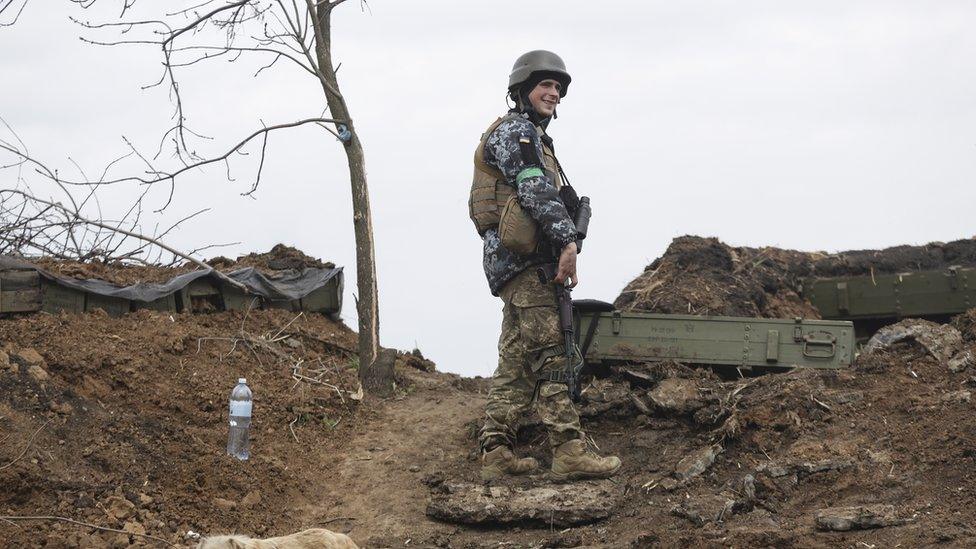
Ukraine is believed to have thousands of experienced troops in the Donbas
The change in Russia's objectives was set out by President Vladimir Putin during a speech last week, where he announced that his aim was "to help the people who live in the Donbas, who feel their unbreakable bond with Russia".
The Pentagon's press secretary, John Kirby, cautioned Russia could be "setting the conditions for future offensive operations" and officials in Kyiv warned that the new Russian offensive does not mean that Moscow has ended its attacks on other parts of Ukraine.
"Putin hasn't removed the goal to destroy us as a state and our political leadership," Mr Danilov said in an interview with Ukrainian TV.

War in Ukraine: More coverage
EXPLAINED: Why Russia wants to seize eastern Donbas
ON THE GROUND: Tourist town braces for assault
CHILDREN: 'He would see tanks in his dreams'
READ MORE: Full coverage of the crisis, external


Are you in Ukraine? Is your family? Share your experiences by emailing haveyoursay@bbc.co.uk, external.
Please include a contact number if you are willing to speak to a BBC journalist. You can also get in touch in the following ways:
WhatsApp: +44 7756 165803
Tweet: @BBC_HaveYourSay, external
Please read our terms & conditions and privacy policy
If you are reading this page and can't see the form you will need to visit the mobile version of the BBC website to submit your question or comment or you can email us at HaveYourSay@bbc.co.uk, external. Please include your name, age and location with any submission.
Related topics
- Published26 May 2022
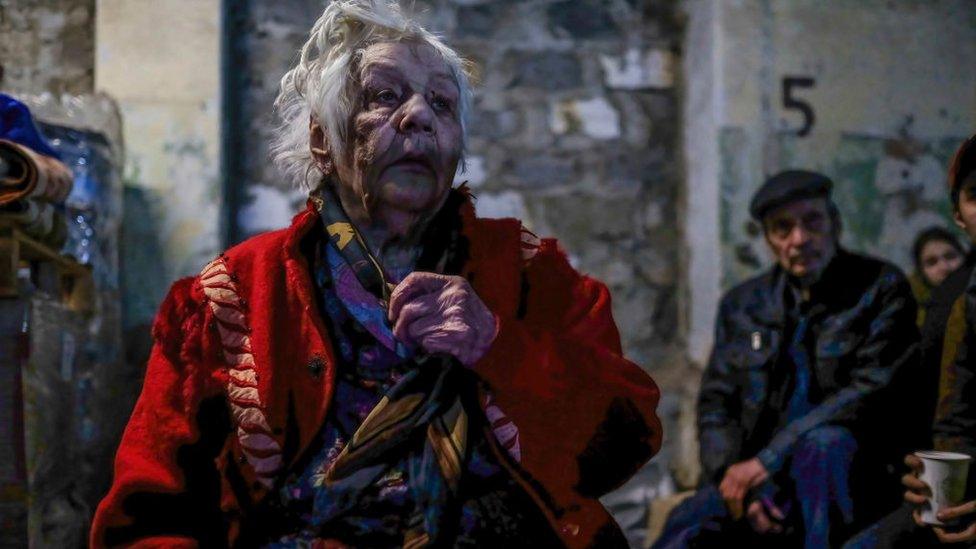
- Published18 April 2022
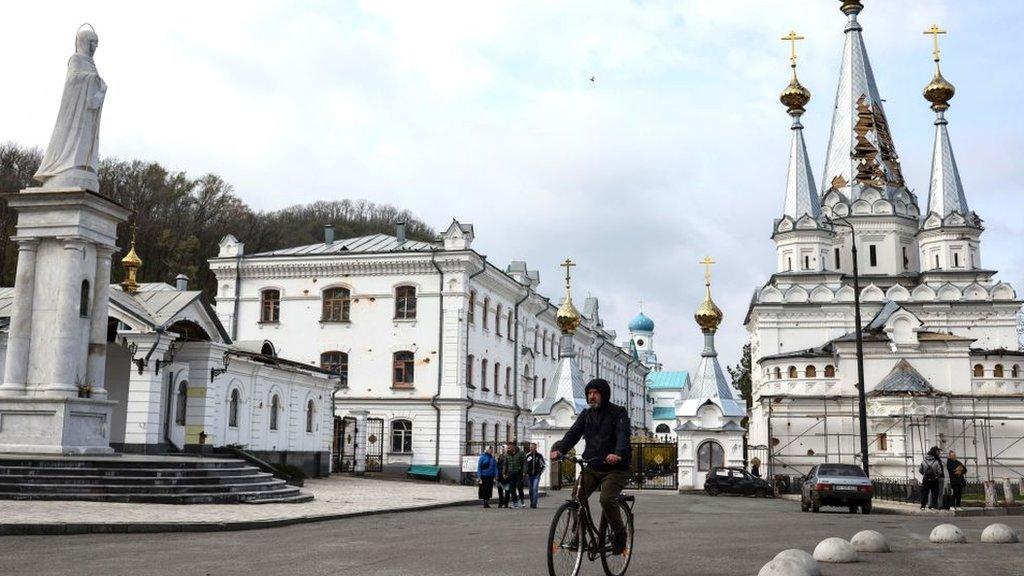
- Published18 April 2022
